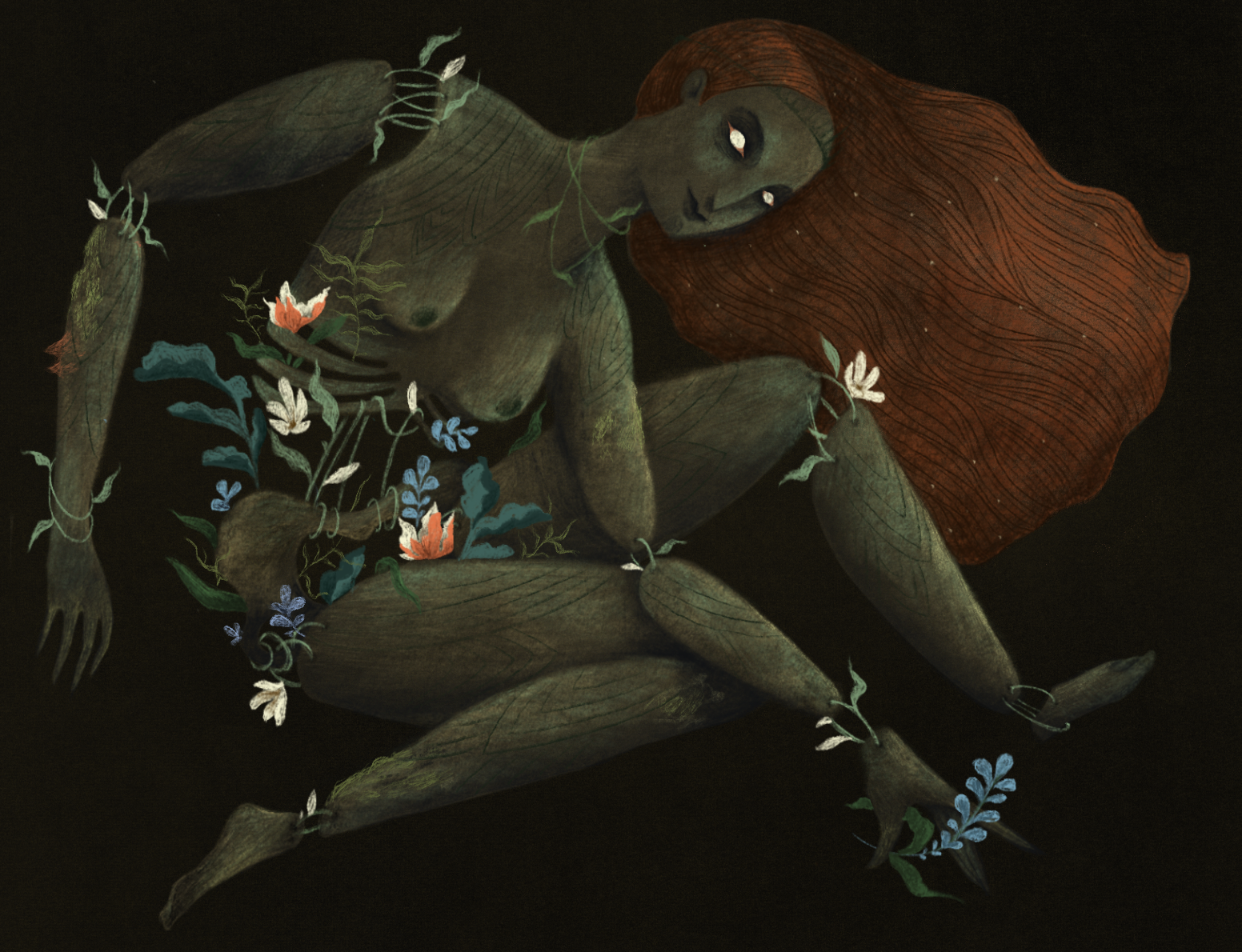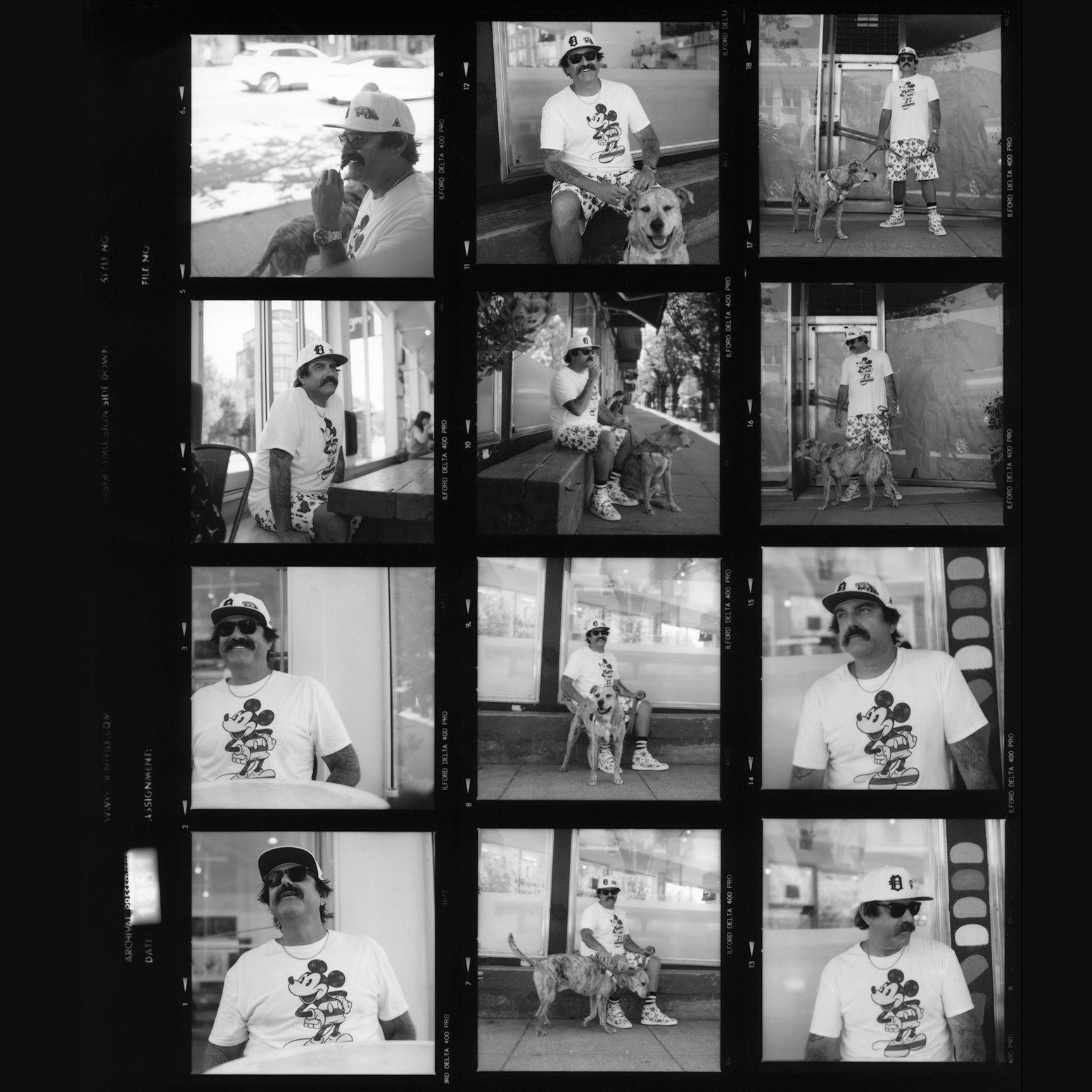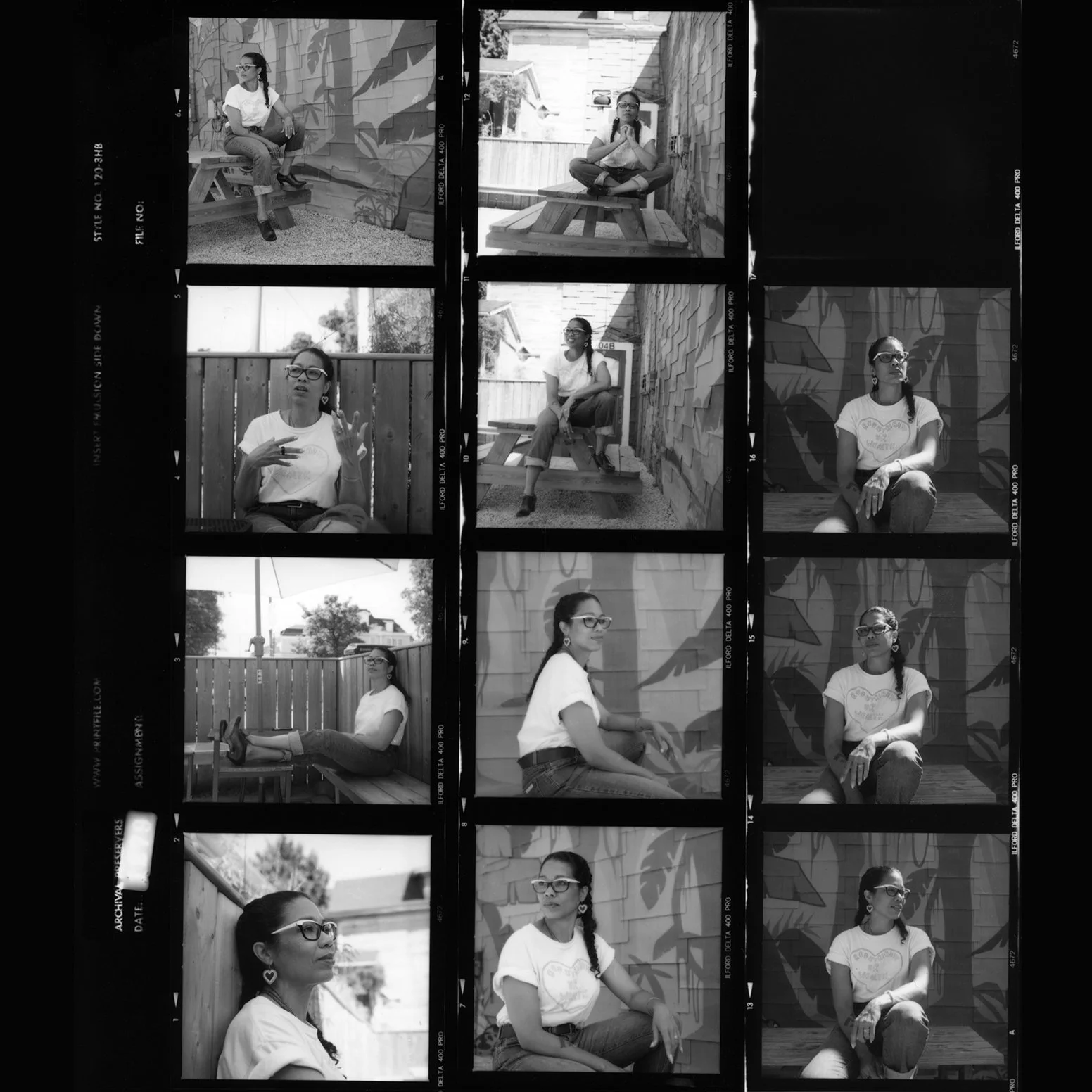Interview: Marisa Emma Smith and Nyla Carpentier
/“At Alley Theatre, we tend to do things that are unconventional in their staging, and we like to tell stories that aren’t often told—socially relevant things that don’t often get exposed through social media,” says Marisa Emma Smith, co-director of Alley Theatre’s adaptation of the award winning German radio play, The Ridiculous Darkness, by Wolfram Lotz.
As Marisa says, this piece will be nothing but unconventional. Lotz’s script is a comedic modern mash up of the classic novel Heart of Darkness and the film Apocalypse Now, engaging with how the cultural and racial ‘other’ is viewed and treated both within and separate from the context of war. The adaptation that Marisa Smith and Nyla Carpentier have co-directed is much more than your average theatre experience; the production has participation from various organizations and groups within Vancouver, such as Tetsu Taiko, Street Vendors Society and the East Van Powwow Crew, making for an interdisciplinary, multi-faceted, collaborative performance, at times featuring more than 40 people onstage, some from various non-theatrical backgrounds.
Photo by Wendy D Photography
“What was it in your directing practice that brought you to this piece?” I ask Marisa and Nyla. Marisa and her husband Daniel Arnold, who adapted The Ridiculous Darkness from a radio to stage play, experienced a show by Public Theatre in New York a few years ago.
“It incorporated outreach and participation from all of five boroughs in New York,” says Marisa. “Pop-and-lock kids, drag queens, flamenco dancers, and it was just this great feeling of being part of this beautiful circle of humanity. We walked out of that with tears in our eyes.” Shortly after, Marisa and Daniel were introduced to Lotz's play. “The script itself has all of these relevances to relationships around colonialism and imperialism in a very current context. It felt relevant on a larger world scale. Whereas Alley theatre’s work is more locally minded.”
However, despite the worldly status of the play, an exciting part of the adaptation process was Lotz's personal support; he articulated in his playwright notes that anyone who adapts this to the stage is strongly encouraged to make any changes in order to keep the piece relevant to what they envision. Therefore, Daniel and Marisa were able to ask of the piece: “Why is it necessary to bring The Ridiculous Darkness to Vancouver? That’s usually what we start thinking about in our work,” says Marisa. “What makes it relevant to our specific local audience?”
Marisa comments: “We live in this very multicultural place that has so many different people, and yet we are kind of cut off from each other. There are some invisible lines that we don’t talk about, but they’re there—and it’s not even a cultural thing, its economic, and something to do with the way that we relate to each other in Vancouver, and how we are kind of unfriendly.”
As a collaborate journey, The Ridiculous Darkness seems to challenge the familiar notion of local theatre. With this piece, the theatre production isn’t isolated to the stage; rather, is heavily reliant on the different connections within the community of Vancouver as it creates a dialogue about how we as a Vancouver community view and communicate with those labelled as ‘other’. It was this collaborative approach to the this production that formed Marisa and Nyla’s directorial partnership. Nyla had always been interested in directing, but had never had the opportunity to do so on such a large scale. She initially auditioned as an actor, bringing with her so many rich ideas, and Marisa and Daniel realized there was no other role for her but co-director.
Photo by Wendy D Photography
When asked about the communication aspect so integral to the conception of this piece, Nyla responds: “Being Indigenous and mixed heritage myself, I have a very strange relationship with colonialism and I am still trying to figure that out within myself. But one of the things that I said to Daniel and Marisa is, don’t be afraid to ask questions and in terms of Indigenous people, don’t be precious with us. We have a sense of humour for a reason, that’s how we survived genocide.”
As an Indigenous artist and performer, Nyla feels that not only has this opened up dialogue between communities, but within the Indigenous community as well.
“It makes us realize when we talk to different communities, that it isn’t simple; it is complex, but you can come to an understanding if you take the time to listen and have those conversations.”
This is a piece meant to probe the audience with questions, and not the easy kind. Nyla says, “There are times when we go into the absurd with this piece, and people may be very challenged by what they see, but the next moment they may be laughing their heads off.” This satirical play engages with challenging content not to illustrate what is right and wrong within our cultural conversations but rather, as Nyla puts it, “to get past all of the complex spiderwebs of emotion, the heart, and of communication and finding that understanding and acceptance between people who are different.”
When I ask Marisa what kind of dialogue she hopes will emerge from this production, she says it could be the smallest, or most subtle. “We’ve gone too far with our politeness in Canada, we’ve gone too far without even being interested in other people’s culture, or culture in general. It’s like we are afraid of it or something. So really, I hope for a letting go of those funny little fears that we have.”
The Ridiculous Darkness runs from November 11 to 19, at The Annex. Tickets/more information can be found here.



















